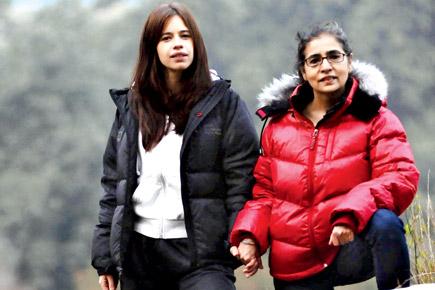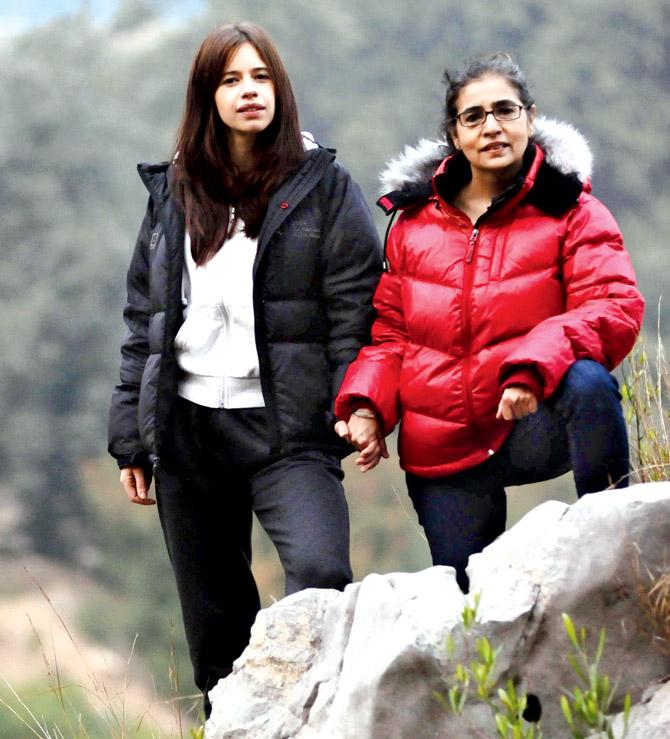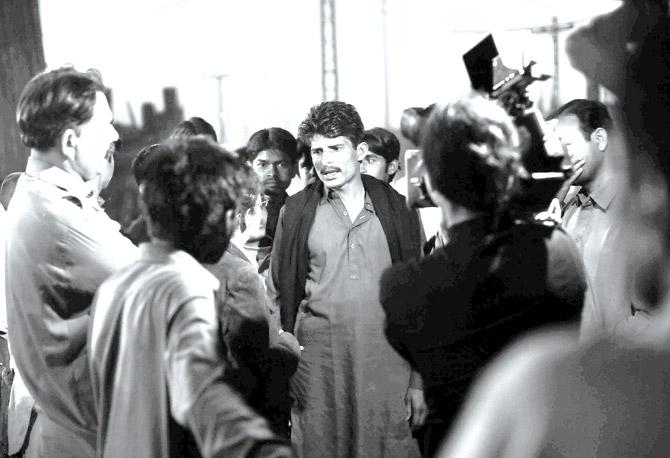A Pak filmmaker and an Indian actress go on a journey across the two nations to know what the common man thinks. The result is a new documentary

Kalki Koechlin and Pakistani filmmaker Sabiha Sumar

Kalki Koechlin and Pakistani filmmaker Sabiha Sumar
For Pakistani filmmaker, Sahiba Sumar, 2013 and 2014 were crucial years for several reasons. Businessman and politician Nawaz Sharif, President of Pakistan Muslim League, had assumed power once again and become Prime Minister in 2013. And in the following year, the country had woken up to the horrific Peshawar attack, where about half a dozen gunmen had entered a school and shot at random killing 141 people, 132 of them students.
ADVERTISEMENT
"It was a wake- up call. It made us question our religious identity and wonder where extremism had taken our country. Meanwhile, just across the border, India, too, was struggling to hold on to its secular identity under the weight of rising Hindutva groups," says Sumar in a telephonic interview from Pakistan. But there was a question that continued to dog her — why were people in India and Pakistan resorting to religious extremism? And, what do ordinary people in both countries feel about this?

The documentary will be released by April 2017
Thus, was born the idea of Azmaish — Trials of Life, a documentary about two women — Indian actor Kalki Koechlin and Sumar, Pakistani — who go on a journey meeting people from all walks of life, trying to understand the pulse of both countries. "I met Kalki as a jury member at MAMI (Mumbai Film Festival) last year. She struck me as someone who empathises with the world and is concerned about its issues. When I told her about the idea for my film she came on board as the Indian partner," says Sumar whose first feature film Khamosh Pani (Silent Waters) won 17 International awards. Together, the duo travelled to parts of Sindh, Karachi and Lahore, and in India, they covered parts of Haryana, Delhi and Mumbai.
The main concern for the people in Pakistan, reveals Sumar, was not the religion of the ruler, but the changes he'd bring in. "They want a leader who can build schools, toilets and make the country safer. They don't care what religion they belong to," says Sumar.
For Koechlin, the reception she received was overwhelmingly heartwarming. "We went to some very rural parts — the deserts in Sindh where there was extreme poverty, people barely have anything there. It hasn't industrialised the way India quite has, but in terms of their attitude, they were all very welcoming and open," says Koechlin, whose stardom made it fairly easy for people to open up to her. She recalls how huge crowds would gather once they realised who she was. "But in a way it was also very helpful because people were really interested in knowing about the documentary and wanted to talk."
Sumar, despite having lived in Delhi for 10 years, had to exercise caution while interacting with people as a Pakistani in India. "Sometimes, I would take a backseat and allow Kalki to interact with people in Delhi and Mumbai because they were more forthcoming about sharing their thoughts with an Indian rather than a Pakistani."
While the people on the street were more open to interaction, the duo ran into hurdles while speaking to the well off. "One of the biggest challenges was to find businessmen in India who were willing to talk to us about the documentary. As soon as they heard that it was about India and Pakistan, they were not interested. All the big CEOs were just not interested. Finally it was a businesswoman who talked to us, Nadia Chauhan from ParleAgro," adds Koechlin. What struck Sumar while interacting with ordinary Indian was the strong sense of exclusion created by gated communities. "For Kalki, as an actor and divorcee, it was so difficult to rent a house. These days, the Jains want only Jains in the neighbourhood, the Muslims want only Muslims, so on and so forth. It's a worrisome trend," she says.
The experience, however, was exhilarating for both. "Kalki picked out the Indian locations along with our research team. We shot in a Mumbai local, in a truck in Sindh and played Holi with the fishermen community in Mumbai. It was exciting because it also became a journey of self-discovery," says Sumar. Considering the nature of a documentary, stumbling blocks were part of the game. The documentary, in the way of solution, raises questions. "We want people to think about the kind of monsters we've built in the name of democracy and religion. We aggressively question the media's mystification and give a voice to the silent majority" says Sumar.
While the shoot has been completed, Sumar and Koechlin are crowdfunding the post production costs on the Wishberry platform. "For us to do that, the picture and sound editing, grading and sound mix has to be done well and that is what the funds will be used for," adds Sumar, who plans to set up a travelling cinema and take the film to small villages and towns in both India and Pakistan and encourage people to discuss the theme and the issues that Azmaish raises.
 Subscribe today by clicking the link and stay updated with the latest news!" Click here!
Subscribe today by clicking the link and stay updated with the latest news!" Click here!







